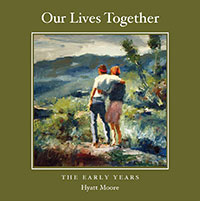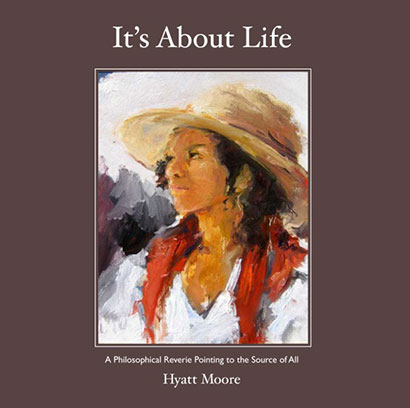The fool folds his hands and ruins himself.*
Such a brief statement, nothing more than just a quick remark nestled among the Ecclesiastical many. It’s such a passive, nonaggressive, “innocent” act, the folding of the hands, for such devastating results.
The Biblical book of Proverbs has more to say about this, but I looked instead at other authors. I found much on the topic, of idleness and it’s opposite: LIFE!
Here’s one, “Idleness is the enemy of the soul,” from soulful Saint Benedict back in the sixth century.
Closer to our times but still early language: “Dost thou love life? Then do not squander time, for that is the stuff life is made of.” Ben Franklin.
Or by 1800’s journalist and abolitionist Gamaliel Bailey: “We live in deeds, not years; in thoughts, not breaths; in feelings, not in figures on the dial; we should count time by heart-throbs. He most lives who thinks most, feels the noblest, acts the best.”
I love that . . . deeds not years, thoughts not breaths, feelings not figures in the bank balance (okay, I changed his quote for that).
Note there’s no“folding of the hands” in any of this.
“Idleness is the gate of all harms . . . An idle man is like a house that hath no walls; the devils may enter on every side.” That’s Canterbury Tale’s Geoffrey Chaucer.
Or from Shakespeare: “Ten thousand harms more than the ills we know, our idleness doth hatch.”
And I love this one, a Turkish proverb: “The devil temps all men, but the idle man tempts the devil.” Whoooooh!
Finally, by 19th-century English dramatist Sir James Matthew Barrie: “The life of every man is a diary in which he means to write one story and writes another; his humblest hour is when he compares the volume as it is with what he hoped to make it.”
That’s inspiring. And haunting.
Excuse me, I’ve got to run. I have much to do. And so do you.
______________________
*Ecclesiastes 4:5
Next: A Proper Time and Procedure for Everything.

 Our Lives Together
Our Lives Together Its About Life
Its About Life
8:18 am
Hyatt, there is such a balance to all this. I know people who are always busy and never sit still for a moment. There is no folding of hands because their hands are forever flailing about. Idleness creates its own idols. But sometimes too much activity is just an avoidance of being still knowing He is God.
8:49 am
Bingo.
9:13 am
Oooo, “Idleness creates its own idols” THAT is a great little gem. Hope you don’t mind if I quote you on that!
9:34 am
I see that idleness is to be avoided. But, if we are being still waiting to hear that “still, small, voice,” then we are not being idle at all, but rather searching and seeking.
Thank you, Hyatt for giving me pause in my busy-ness.
9:46 am
Ouch. The discipline of time is a struggle for me–thanks for these reminders of its value.
11:18 am
And I’ll add another…”It’s not enough to be busy, the question is, what are you busy about?” Henry David Thoreau.
Too often I find myself far from idleness, but busy,busy,busy with the wrong priorities. Your blog gave me perspective!
3:50 pm
B Being
U Under
S Satan’s
Y Yoke
This isn’t from Scripture but it has helped me to not waste my time just being busy- running frantically to and fro as opposed to doing what I believe the Lord has set before me to do.
9:50 am
I’ve found times of quietness and solitude are essential to keeping myself aligned. But even these times are not all folding of the hands. They’re actively focused times, centered on Christ and all of what he means to me. It’s these moments that give a lingering peace amidst all the busyness. Right on, Phil, with the “too much activity” balance. Oops, phone’s ringing!
8:22 pm
Hyatt, you summed it all up for me with this: “Excuse me, I’ve got to run. I have much to do. And so do you.”
Keeping in mind the “much to do” and how the “much to do” will AFFECT one’s life and the lives of those around us is, in my opinion, probably the most important lesson to learn from this writing.